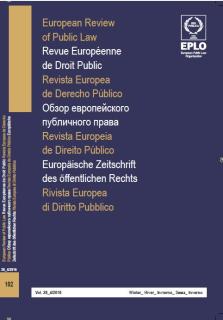
A “Summer Nightmare”?
Some Thoughts regarding the UK Referendum of June 23rd, 2016,
and the Background of Certain Elements of Art. 50 TEU or:
Shakespeare’s Story of Oberon and Titania, “Reloaded”
Lawyer, Dr. iur., MLE, Research Assistant
(Faculty of Law, Gottfried Wilhelm Leibniz Universität Hannover)
The - very close - result which the UK referendum of June 23rd, 2016 (regarding the Kingdom’s future position within, or not, the EU) produced, has already been followed by various, quite intense reactions, both in the several parts of the UK and elsewhere. The basic and background story seems a well-known one though: two partners experiencing problems with each other - and one of them considering to leave the other. One feels reminded of William Shakespeare’s comedy A Midsummer Night’s Dream, in which - amongst other situations and protagonists - Oberon and Titania, king and queen of the fairies, respectively, experience comparable difficulties. But - what exactly could be a solution to the new situation produced? Could there be proper answers based on the common law and the EU law (especially taking in mind the rationale of Art. 50 TEU and British constitutional structures)? Shakespeare, for once, would allow us to remain optimistic for the future.
Les résultats - très serrés - du référendum tenu au Royaume-Uni le 23 juin 2016 (concernant le maintien ou non dans l’UE) ont déjà été suivis de diverses réactions intenses dans plusieurs régions du Royaume-Uni et ailleurs. La base et le contexte de cette affaire semblent pourtant familiers: deux partenaires ont des problèmes l’un avec l’autre, et l’un d’eux envisage de quitter l’autre. Cela rappelle la comédie de Shakespeare, Le Songe d’une nuit d’été, où - entre autres situations et protagonistes - Obéron et Titania, roi et reine des fées, ont des difficultés similaires. Mais quelle pourrait être la solution à la nouvelle situation produite? Existe-t-il des réponses appropriées fondées sur le common law et le droit de l’UE (notamment si on a à l’esprit le raisonnement de l’article 50 TUE et les structures constitutionnelles britanniques)? Pour une fois, Shakespeare nous permettra de rester optimiste sur le futur.





















